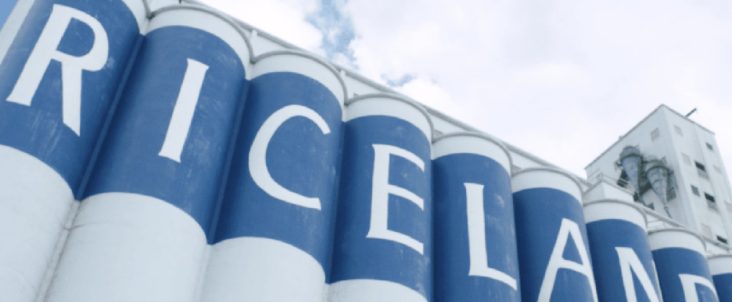Riceland Foods Carbon Ready Program promotes sustainability practices
by April 22, 2024 5:39 pm 704 views

Several years ago, a trend began to develop. Consumers wanted to know where their food was coming from and how it was produced. A lot of data would have to be collected in order make that process transparent and meaningful, Riceland Foods Vice President of Government Affairs and Sustainability Adam Shea told Talk Business & Politics.
After researching an approach, Riceland partnered with Arva Intelligence, a data collection and analytics firm, to “harvest” this agricultural data and turn it into something that farmers could use to improve crop performance and add an income stream through improved sustainability efforts.
In 2022, the company started a new program, the Riceland Carbon Ready Program. Corporations buy carbon off-sets as a part of improving their individual company’s carbon footprint. The first year about $300,000 was distributed to participating farmers.
That total ballooned 13-fold as Riceland Foods distributed over $4 million to its farmer-members enrolled last year. Riceland farmer-members enrolled in the program tracked key data points, such as tillage method, irrigation, and nutrient management, to showcase how climate smart practices impact sustainable metrics.
Riceland President and Chief Executive Officer Kevin McGilton said he’s excited about the program’s 2023 results and what it means for the cooperative’s membership.
“Over a decade of learning and planning went into positioning the cooperative with the right people and partners to build Riceland’s Carbon Ready Program. Thanks to the innovative data captured through the Riceland-Arva Intelligence partnership, our farmer-members are not only utilizing sustainable practices but are also rewarded for them,” McGilton said. “Through this program, sustainability is no longer a buzzword; it’s a driver of innovation in agriculture, creating new opportunities and a brighter future for Riceland members and customers.”
Over 138,000 tons of CO2 emissions reductions resulted from the program. About 24.1 billion gallons of water was saved through irrigation management practices like Alternate Wetting and Drying (AWD), Multi-inlet Rice Irrigation (MIRI), furrow irrigated rice and zero grade precision leveling. Nearly 69,000 acres of rice fields were utilized as waterfowl habitat in the off-season as a result of the sustainability efforts.
Shea said the success of the program comes from focusing on farmers who implement and maintain climate-smart practices.
“Riceland farmer-members are the backbone of this program’s success,” Shea said. “Our partnership with Arva Intelligence enables us to trace the various data points to show how our members use less water and reduce greenhouse gas (GHG) emissions on the farm. Partnering with our CPG and retail customers allows us an avenue to support them in their efforts to achieve their climate goals while creating sustainable changes throughout the supply chain.”
Funding for the program was provided from six companies in the consumer-packaged goods (CPG) and retail space that purchase rice from the cooperative. The investment in the program allows Riceland’s CPG and retail partners to make Scope 3 GHG emission reductions claims as part of their overall sustainability goals.
“We understand from first-hand experience that what farmers create is their own, and they deserve to know their data is protected and respected,” Arva’s Director of Communications John McEntire said. “After all, we are Riceland members ourselves just ten miles outside of Stuttgart, and we share Riceland’s mission of serving their growers and our neighbors. Partnerships like Carbon Ready are so important because we all can go so much further together — from creating environmental impact, driving value to the farm, and delivering sustainability solutions to the supply chain.”
In 2020, the cooperative and its farmer-members set an ambitious goal to reduce water usage in rice production by 250 billion gallons by 2025. The program has added value to farmer-members involved by improving the data collection process for tracking progress towards that goal. To date, about 200 billion gallons has been saved, or about 80% of the goal.
“As we plan for the future, our goal is to create more value for our farmer-members through sustainable programs like Riceland Carbon Ready,” Shea said. “The sustainability space is evolving quickly, and our cooperative needs to adapt with the changes. Our team is focused on growing the program and seeking out additional opportunities for climate smart practices to be showcased on the farm and throughout the supply chain.”
